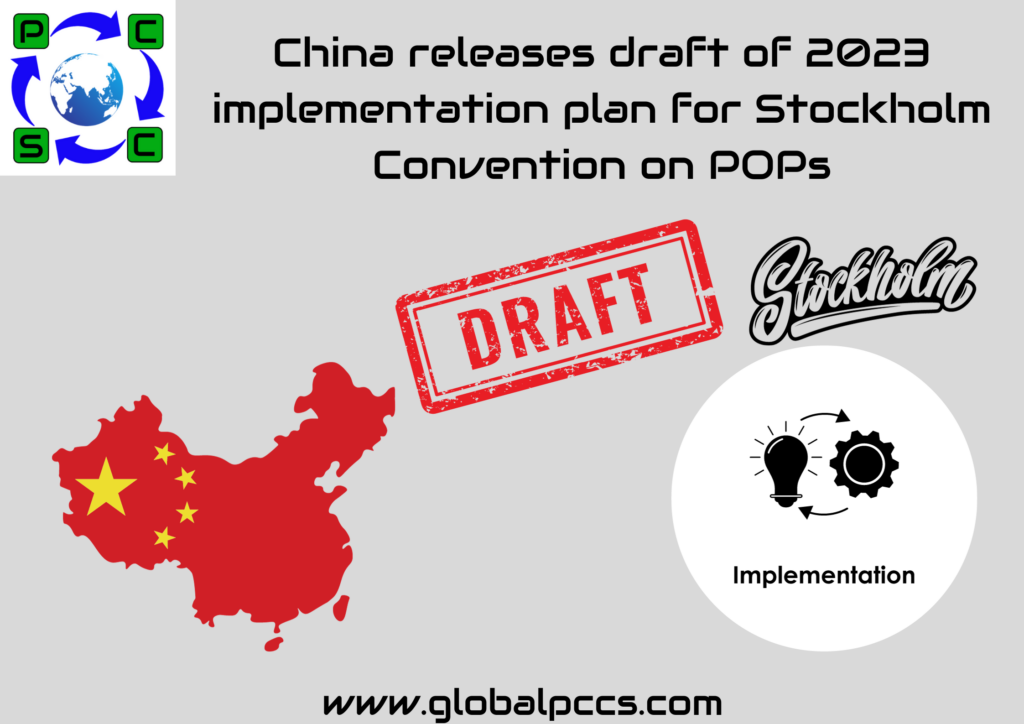
China’s Ministry of Ecology and Environment published a draft of their national implementation plan for the Stockholm Convention on Persistent Organic Pollutants on its website on September 5, 2023.
According to the Stockholm Convention for continuous regulation of persistent organic pollutants, this section of the implementation plan would prohibit the production, use, import, and export of hexachlorobutadiene, polychlorinated naphthalenes (PCNs), pentachlorophenol (PCP) and its salts and esters, decabromodiphenyl ether (decaBDE), and short-chain chlorinated paraffins (SCCPs).
It consists of the following detailed plans to advance green development through the application of the convention:
➔ Update the List for Industrial Structure Adjustment Guidance1 as necessary, and classify hexachlorobutadiene, polychlorinated naphthalenes, pentachlorophenol and its salts and esters, decabromodiphenyl ether, and short-chain chlorinated paraffins as substances to be phased out.
➔ Set stricter limits on the concentrations of decabromodiphenyl ether and other persistent organic pollutants in products, with the following regulation-making plans:
➔ Create regulations on limits, measuring methods, standards and measuring technology for decabromodiphenyl ether content in polyurethane foams for construction.Revise current standards for heavy liquid paraffin products, and introduce new requirements for the inspection of short-chain (carbon chain length of 13 or less) normal paraffin content in products.Strictly enforce the restriction on hexabromocyclododecane in insulation materials for construction, and develop a scheme for limiting the concentration of perfluorooctanesulfonic acid (PFOS) and its salts in firefighting foams in phases.
➔ Add decabromodiphenyl ether and short-chain chlorinated paraffins to the lists of goods prohibited for import and goods prohibited for export in accordance with the law.
➔ Oversee producers of trichloroethylene and tetrachloroethylene, which generate hexachlorobutadiene when produced; urge the implementation of mandatory clean production assessment in accordance with the law; and promote the transition to clean production.
➔ Continuously implement pollution control measures for dioxins, and in coordination with this, reduce polychlorinated naphthalenes generated unintentionally and released into the environment.
➔ Conduct research on proper limits and environmentally sound disposal technology for persistent organic pollutant waste, and standardize the neutralization of persistent organic pollutant waste.
➔ Implement the environmental management of persistent organic pollutant waste that is considered hazardous waste according to the national hazardous waste list or the national hazardous waste criteria.
➔ Monitor the progress in the international environmental management of persistent organic pollutant waste, and actively participate in negotiations related to the Basel Convention on the Control of Transboundary Movements of Hazardous Wastes and Their Disposal.
Source: – https://enviliance.com/regions/east-asia/cn/report_10907








 Authorised IMDS & CDX Training & Consulting partner for
Authorised IMDS & CDX Training & Consulting partner for






